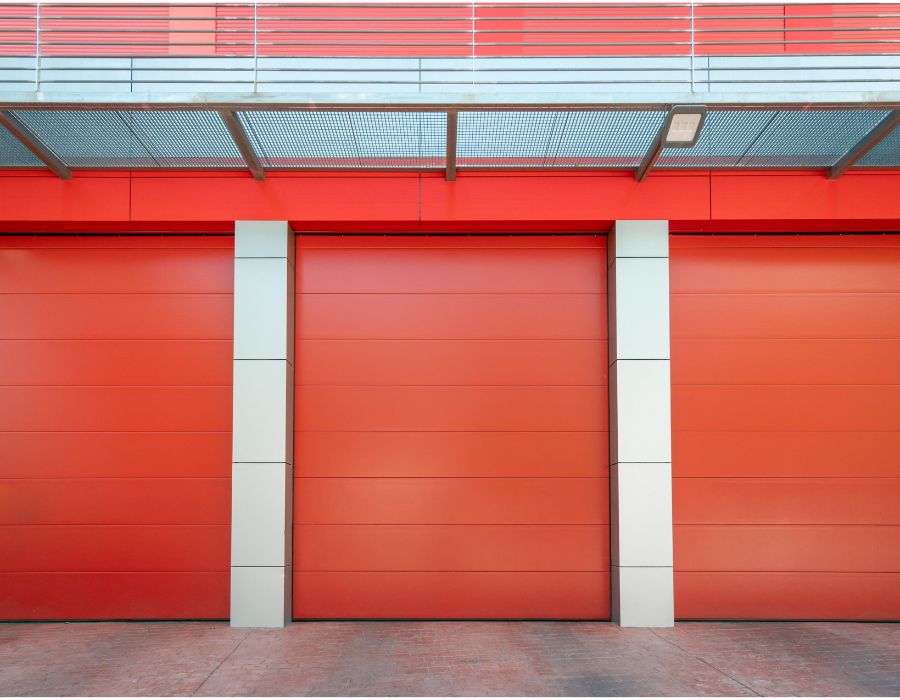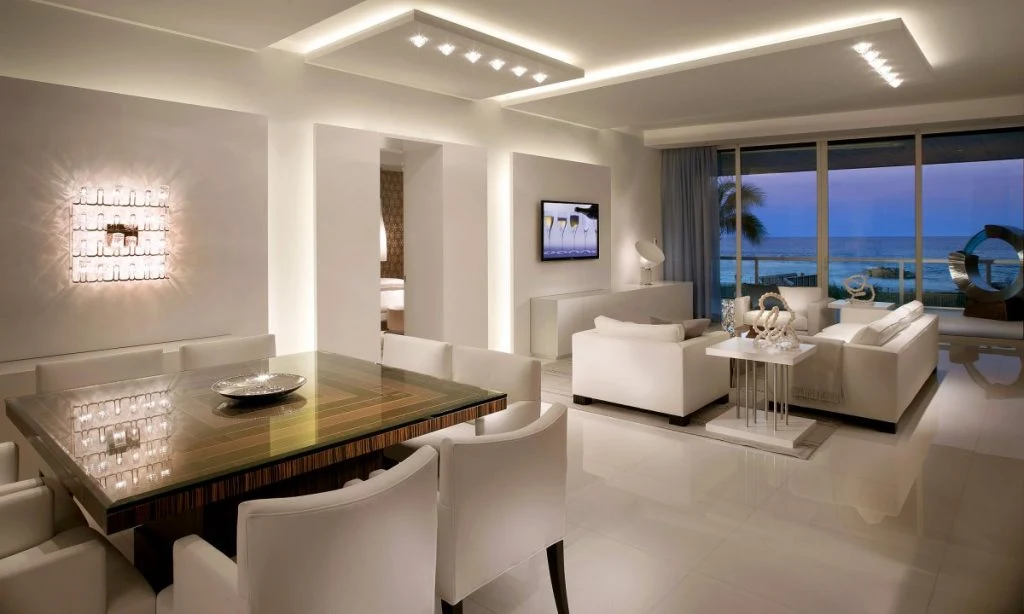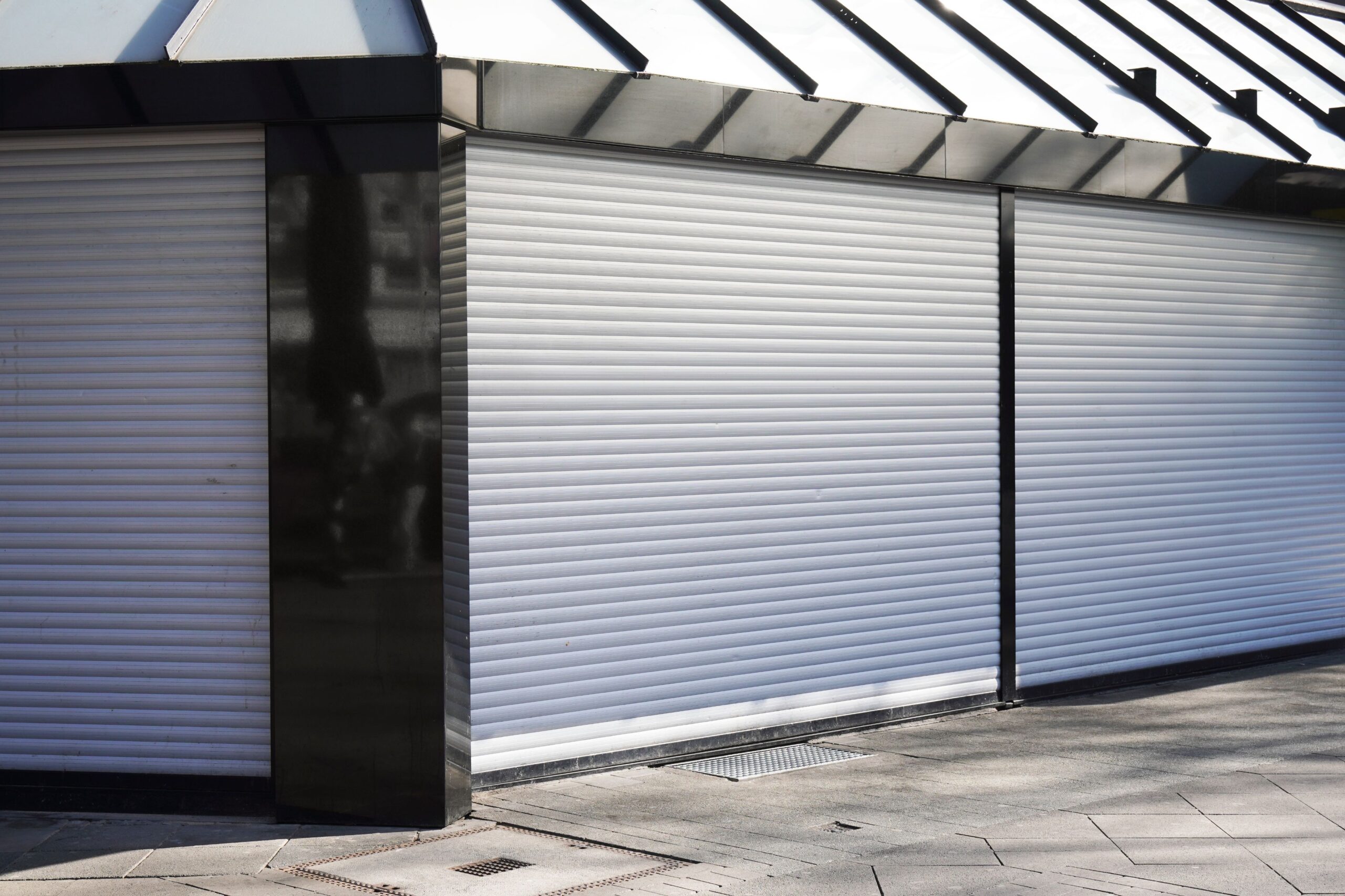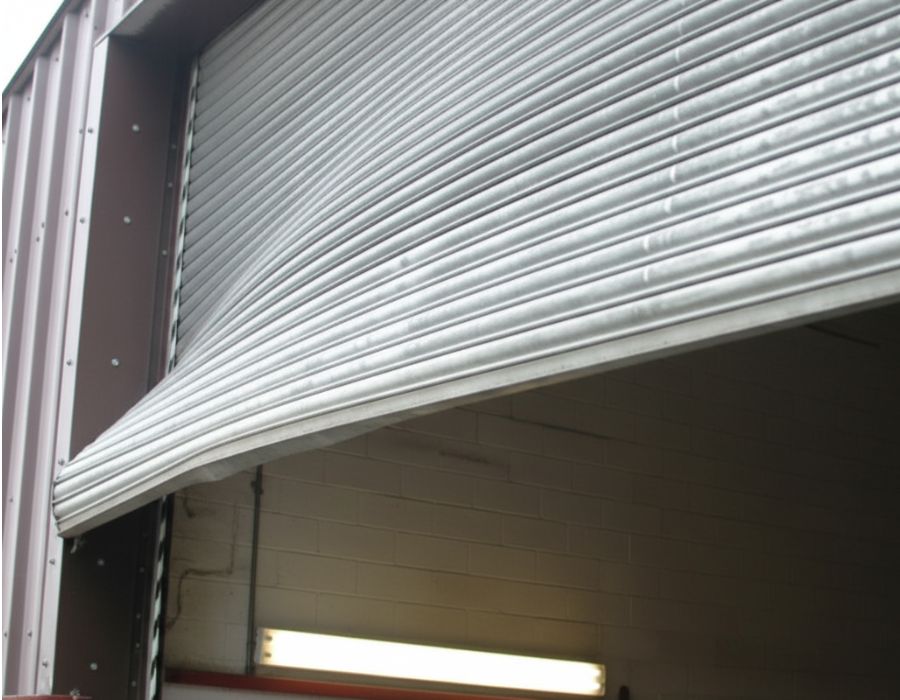Roller doors are a popular choice for Sydney properties because they provide security, withstand coastal conditions, and save space. They roll vertically into a compact position above the entrance, making them ideal for tight driveways, loading docks, or high-clearance vehicle bays.
Many models feature corrosion-resistant finishes that withstand salt-laden air and can be automated for easy use in wet weather conditions. Their space-efficient design also suits detached garages and commercial properties, where minimal overhead clearance is an advantage.
A 2024 survey of commercial property managers found that over half preferred roller door systems for mid-size warehouses due to easy installation and low maintenance.
Common Types of Roller Doors
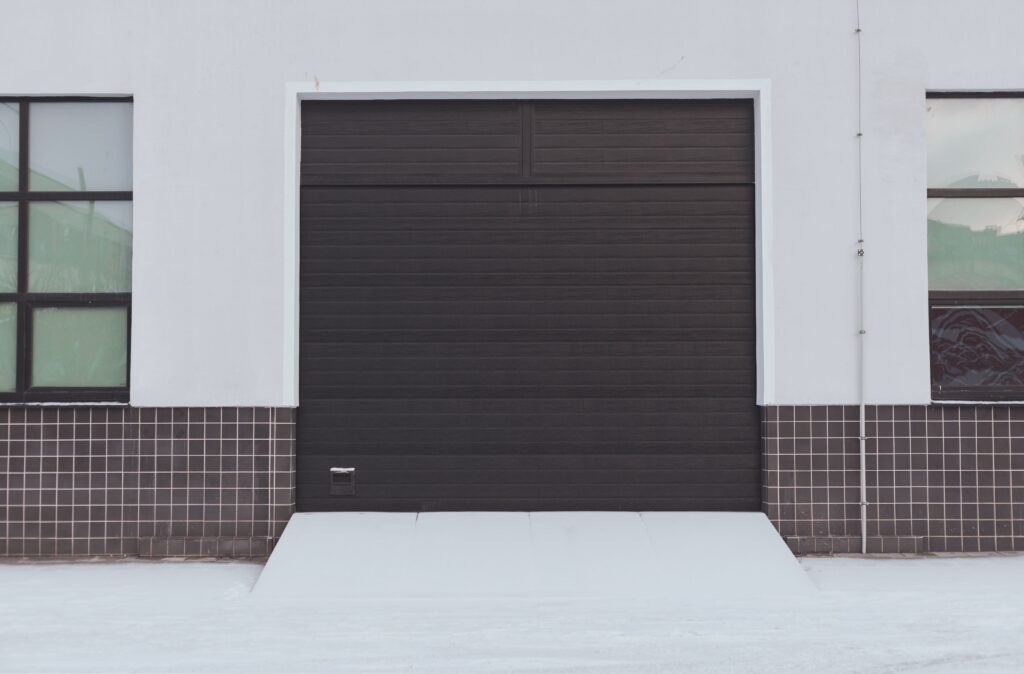
Below are the main categories of roller doors you might consider. Each has specific benefits, drawbacks, and maintenance needs.
Single-Skin Metal Roller Doors
Single-skin doors are the most common and cost-effective option. Typically made from galvanised steel or aluminium sheets, they roll up neatly into a compact space above the opening. They are favoured for garages, small workshops, or secondary storage units.
Pros:
- Cost-effective
- Generally simple to install
- Lightweight if made of aluminium
Cons:
- Lower insulation
- Can be noisy in high winds
- May dent if struck or misused
Single-skin roller doors are a practical choice if you do not need thermal protection or heavy security. They are also an appealing option if your main priority is to keep your initial costs in check.
Insulated Roller Doors
Insulated doors, sometimes referred to as double-skin or foam-filled doors, are ideal for properties that need temperature regulation or noise control. Imagine a bustling suburb where traffic noise and summer heat can be significant. Insulated roller doors come with an inner and outer metal skin, often with a polyurethane foam layer in the middle.
Pros:
- Energy efficiency helps reduce heating or cooling costs
- Sound-dampening design cuts outside noise
- Often sturdier than single-skin varieties
Cons:
- Higher upfront cost
- A bit heavier, so they might require a stronger motor
- Repairs can be more expensive
For workshops or small offices with roller doors, insulated options help keep the space comfortable and reduce street noise. While they cost more upfront, they can lower energy bills and improve working conditions over time.
Commercial-Grade Roller Shutters
Commercial-grade shutters, which are often used in retail storefronts, logistical facilities, and commercial complexes, tend to feature heavier steel construction and slat-based designs. They often include a bottom rail, robust side guides, and sometimes upgraded locking systems.
Pros:
- Excellent security features
- Highly durable for busy warehouses
- Weather-resistant finishes
Cons:
- Higher price bracket
- Usually heavier, so you need an adequate motor
- Installation can require reinforcing the door opening
In Sydney’s industrial areas, commercial roller shutters are popular for security. With built-in tension springs, they’re easier to operate in busy locations and provide strong protection against break-ins.
Grilled or Perforated Roller Doors
If you need visibility or airflow while maintaining a level of security, grilled or perforated roller doors are worth a look. These doors have either patterned slots or mesh-like sections to help with ventilation and allow partial viewing inside.
Pros:
- Improved airflow helps with moisture control
- Lets customers see displays, useful for shops
- Looks more inviting than a solid steel barrier
Cons:
- Generally less secure than solid shutters
- Limited insulation
- May require more frequent cleaning to remove dust in the slots
Grilled roller doors are a common sight in shopping centres. After hours, you can walk by and still see product displays inside. If your property has a basement car park that gets stuffy in hot weather, these might also help circulate fresh air instead of trapping humidity.
High-Speed Roller Doors
High-speed or rapid-roll doors are typically made from reinforced PVC or lightweight metal. They use a powerful motor and an advanced control system to open and close in seconds, which is extremely helpful in high-traffic commercial or industrial sites.
Pros:
- Minimises downtime by speeding up vehicle entry and exit
- Reduces air exchange, useful in temperature-controlled facilities
- Suitable for clean environments such as food or pharma storage
Cons:
- Can be more expensive than regular roller doors
- Requires specialised servicing
- Motor system must endure constant use
If quick loading and unloading are essential in your warehouse, the high-speed roller door may save you both time and energy costs (particularly if you want to keep the air-conditioned air inside).
What Affects Roller Door Cost
As with any major property upgrade, roller door costs can vary widely. In Sydney, expect to pay a bit more compared to certain regional areas, due to higher labour rates and transport fees for materials. Here are the main cost drivers:
1. Door Size
Wider and taller doors require more material and often a more powerful motor, pushing up the price.
2. Material
Steel doors are typically cheaper, but aluminium offers better corrosion resistance. Insulated doors cost the most, partly because of their thick double-skin construction.
3. Automation
Manual roller doors cost less to buy, but automating them makes daily use simpler. A robust motor plus remote operation can add a few hundred dollars or more to your budget.
4. Installation complexity
If your door opening needs structural reinforcement or if your site has restricted access, the labour charges can increase.
5. Extra features
Extras like advanced locking systems, safety sensors, or custom paintwork will add to your total bill.
Sydney-based suppliers usually offer package deals that bundle door, motor, and roller door installation costs into one quote. Be sure to ask for itemised pricing so you can compare estimates from a few different providers.
Roller Door Installation, Repairs, and Maintenance
Installing a roller door usually takes a day or two. The installer sets up the side tracks, fits the rolling mechanism at the top, attaches the door curtain, and adds a motor if you’ve chosen automation. A few checks make sure the door opens and closes smoothly.
Over time, you might run into dents, worn-out motors, or tracks that go out of line, especially in coastal areas where salt and moisture can cause rust. Regular care helps avoid big repair bills, so it’s important to:
- Keep the tracks clear
- Oil the moving parts
- Test the safety sensor if your door has one.
A yearly service by a professional is a good idea to keep it working properly. It is worth noting that many roller doors come with a manufacturer’s warranty, sometimes as long as five to ten years, so hold onto your purchase documents in case you ever need to claim residential, commercial roller door repairs, or industrial roller door repairs.
Choosing the Right Door for your Property
By this point, you have seen the variety of materials and features that roller doors can offer. The final decision might depend on several factors:
- Your security needs: A standard steel door may be fine for a suburban home, but a commercial-grade shutter could be necessary for a warehouse in an industrial park.
- Level of insulation: If you want a calmer, cooler environment inside, insulated doors pay for themselves in energy savings.
- Budget boundaries: Single-skin doors cost less upfront, but they may not meet strict commercial or high-security requirements.
- Aesthetics: If your building faces a busy street, you may want a door that blends with your exterior style or corporate brand.
Discuss your goals with at least two reliable suppliers. A reputable dealer will ask about your climate concerns, building usage, and operational frequency before suggesting a suitable door. That extra conversation can prevent you from buying a door that either underperforms or overshoots your needs.
Frequently Asked Questions
Here are a few common questions from property owners who are exploring roller doors.
- What is the average cost of a commercial roller door in Sydney?
Entry-level steel roller doors start around $1,500 to $3,000, while insulated or automated models can exceed $5,000. Prices vary with materials and features, so always compare quotes.
- How often should I service my roller door?
An annual professional service is recommended, with track cleaning and lubrication every six months. Regular checks help catch issues early and reduce repair costs.
- Do roller doors suit high-wind areas in Sydney’s coastal suburbs?
Yes, high-wind or cyclone-rated roller doors are designed to handle strong gusts. Ask your supplier about reinforced slats and heavy-duty tracks for coastal conditions.
- How do I maintain a roller door to extend its lifespan?
Inspect monthly for rust or loose parts, and keep tracks clean and lubricated. Smooth rolling without noise or pulling means your door is in good shape.
- Can I install a roller door myself?
DIY is possible for small garage doors, but commercial systems are best left to professionals. Improper installation risks damage, safety issues, and voided warranties.
Need a Roller Door in Sydney? Get Expert Help Today!
The right roller door can protect your property, save space, and withstand Sydney’s coastal weather. From cost-effective single-skin doors to insulated or commercial-grade options, AJ Services Group can help you choose and maintain the perfect fit.
Call us on 1300 871 836 or email service@ajservicesgroup.com.au today to book your free quote and get your roller door installed or repaired by the experts.
